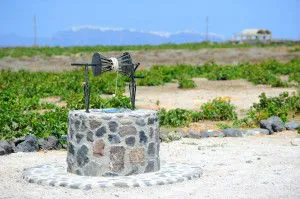Drinking water for most Americans is regulated by state and federal government, as it’s received through community supplies, but for approximately 15 percent of Americans who get their water through a private well, there are no experts regularly checking its source and the quality before it gets to the tap. This makes it essential to take precautions in order to ensure the drinking water supply is safe.
When purchasing a house that has a private well, a test to analyze water quality should always be performed – and the contract should be contingent upon the results. While most groundwater is safe, it should be tested periodically as it can sometimes become contaminated.
The deeper the well, the less likely that is to happen. Runoff pollutants can seep into groundwater and traces of a variety of substances can be found, such as microorganisms, heavy metals, lead, copper, household waste and fluoride, among others.
Microorganisms like bacteria, viruses and parasites are most often found in wells that are shallow. Some of these organisms can cause a variety of illnesses with symptoms such as diarrhea and nausea. The effects can be short-term but severe, similar to food poisoning, and can recur frequently or develop slowly over a period of time.
A high nitrate level in the water supply can be particularly threatening to infants when used to mix with powdered formulas. Many water systems add small amounts of fluoride, but an excessive consumption of naturally occurring fluoride can damage the brain and bones.
Before using well water, it should be tested for pesticides, organic chemicals and heavy metals, and then tested annually for nitrate and coliform bacteria in order to detect contamination issues as soon as possible. Of course, if a problem is suspected, it should be tested more frequently.
Flooding
If a flood occurs in your area, you’ll need to heed these tips to avoid illness and other potential harmful effects:
- Never drink or wash from a flooded well.
- Stay away from a flooded well pump to avoid electrical shock.
- Call in a well or pump contractor to clean and turn on the pump.
- Once the pump has been turned back on, you’ll need to pump it until the water runs clear to eliminate flood water. If it doesn’t run clear you may need to get advice from your county or state health department.
Protecting your water supply
- In order to protect your water supply, it’s important to carefully manage activities near its sources, such as keeping contaminants away from the well and keeping hazardous chemicals out of the septic system, in addition to the following:

- The area around the wall should be sloped to drain surface runoff away from it.
- Install a well cap to prevent the unauthorized use or entry into the well.
- Test your well water annually for nitrates, coliform bacteria and other substances that may be of concern.
- Never mix or use pesticides, fertilizer, herbicides, fuel, degreaser or other pollutants near the well.
- Never dispose of waste or harsh chemicals, petroleum products, solvents or pesticides into a dry well or a septic system.
-The Alternative Daily
